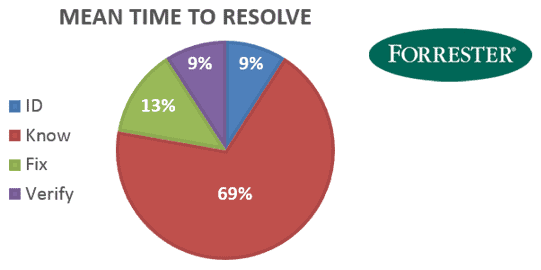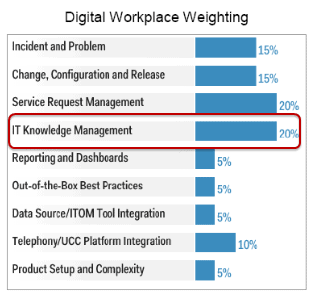Not every company needs a knowledge management system. If you’re giving good service without a knowledge management system or using the knowledge management tool built into your CRM or ITSM system, that may be all you need.
But if any of these situations sounds like your company, you might be a good fit for knowledge management:
- People don’t know where to look to find knowledge, and they don’t know where they can share their knowledge with others
- Your knowledge is scattered across the organization in various repositories (file shares, SharePoint, intranet, Outlook and so on)
- Knowledge is in people’s heads…and when they leave the company, that knowledge goes with them
- Your customer experience depends on who answers the phone
- It takes a long time to train your support agents
The complexity of your environment is also a factor. The importance of knowledge management increases as you add complexity: The more employees, customers, products and knowledge that you have, the more you need a disciplined approach to knowledge management to find the right answers and satisfy all your customers.
How does knowledge management help?
Your customers, support agents, and employees are constantly trying to find answers about your products or services. Yet the process is time-consuming. According to Forrester Research, of the total time that it takes a support agent to resolve an issue (“mean time to resolve”), more than two-thirds of it is spent looking for the knowledge.

Source: Enhance Service Visibility To Reduce MTTR, Forrester Research
This complexity – knowledge everywhere, residing in multiple systems – exacerbates the issue and results in even longer resolution times.

Source: The Future of IT Service Support Management, Gartner Research
You know how much one second in your contact center or service desk is worth. To some of our clients, one second is worth thousands of dollars! A good knowledge management system slashes the “mean-time-to-know” and therefore the overall time-to-resolution, saving millions of dollars a year. (By the way, a good knowledge management tool will also make it easier to fix and verify solutions, saving time there as well.)
And according to Gartner, knowledge management is more important than incident management and problem management in running an efficient service operation:
What you can gain from knowledge management
Our clients report a long list of benefits, including a faster work cycle, increased accuracy, improved service levels, reduced employee turnover, reduced training time and increased staff morale, to name a few. Some results they’ve achieved, and which you can achieve, too:

How to build the business case for knowledge management
Calculate the ROI you will achieve by implementing a knowledge management system based on your specific metrics: the number of support agents, the number of calls that can be deflected to self-service, expected increase in FCR and so on.
Do you need help calculating the ROI? Contact RightAnswers and we can walk you through it!
In terms of how to present your findings to senior management to get funding for your project, follow the step-by-step guide on how to write your business case.
Also, watch the on-demand webinar, It’s Budget Season – Justify Your Investment in KM.



